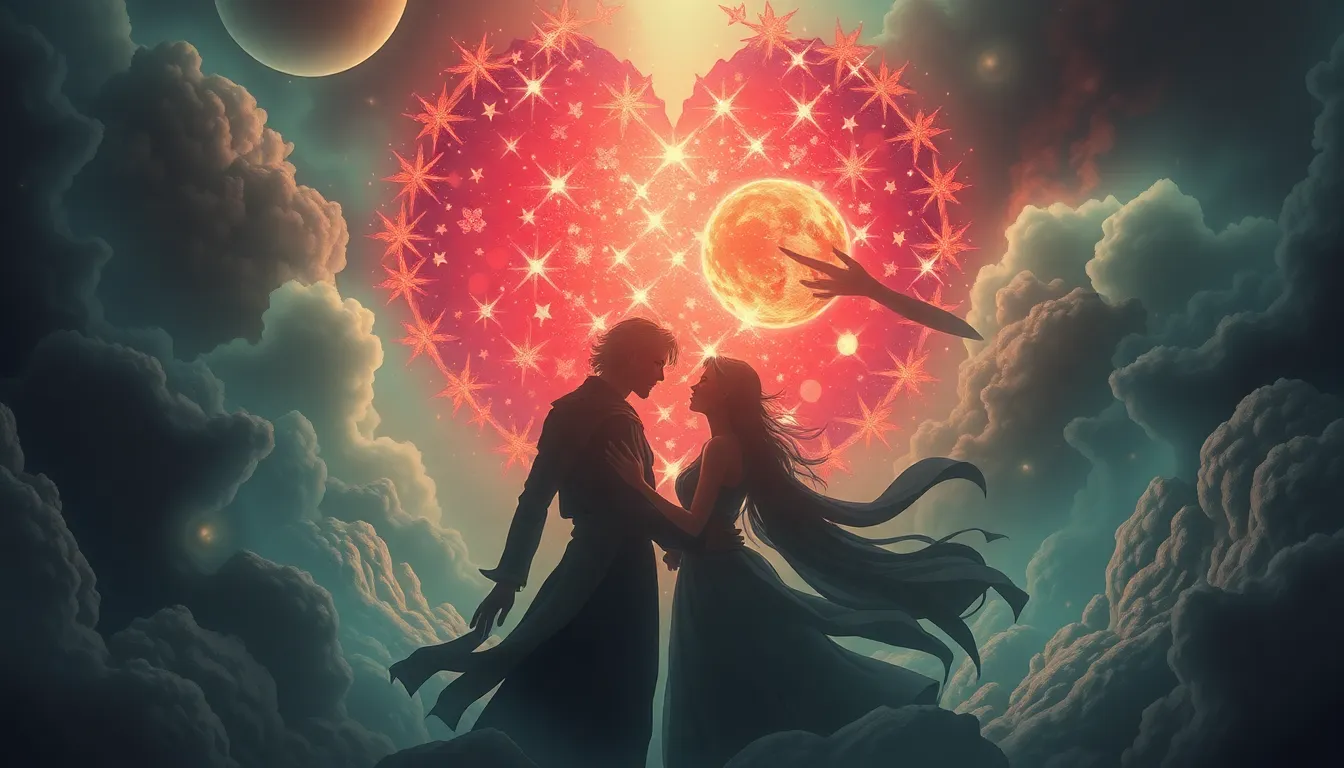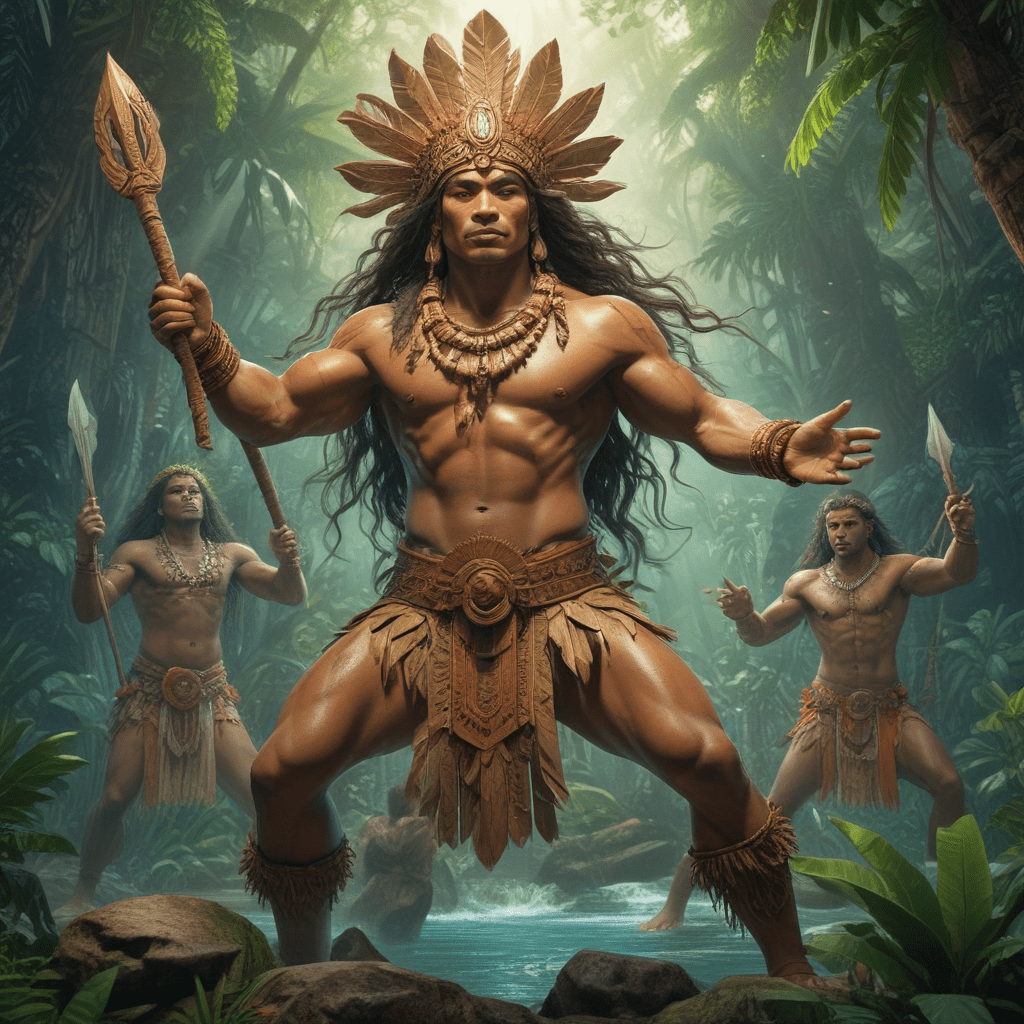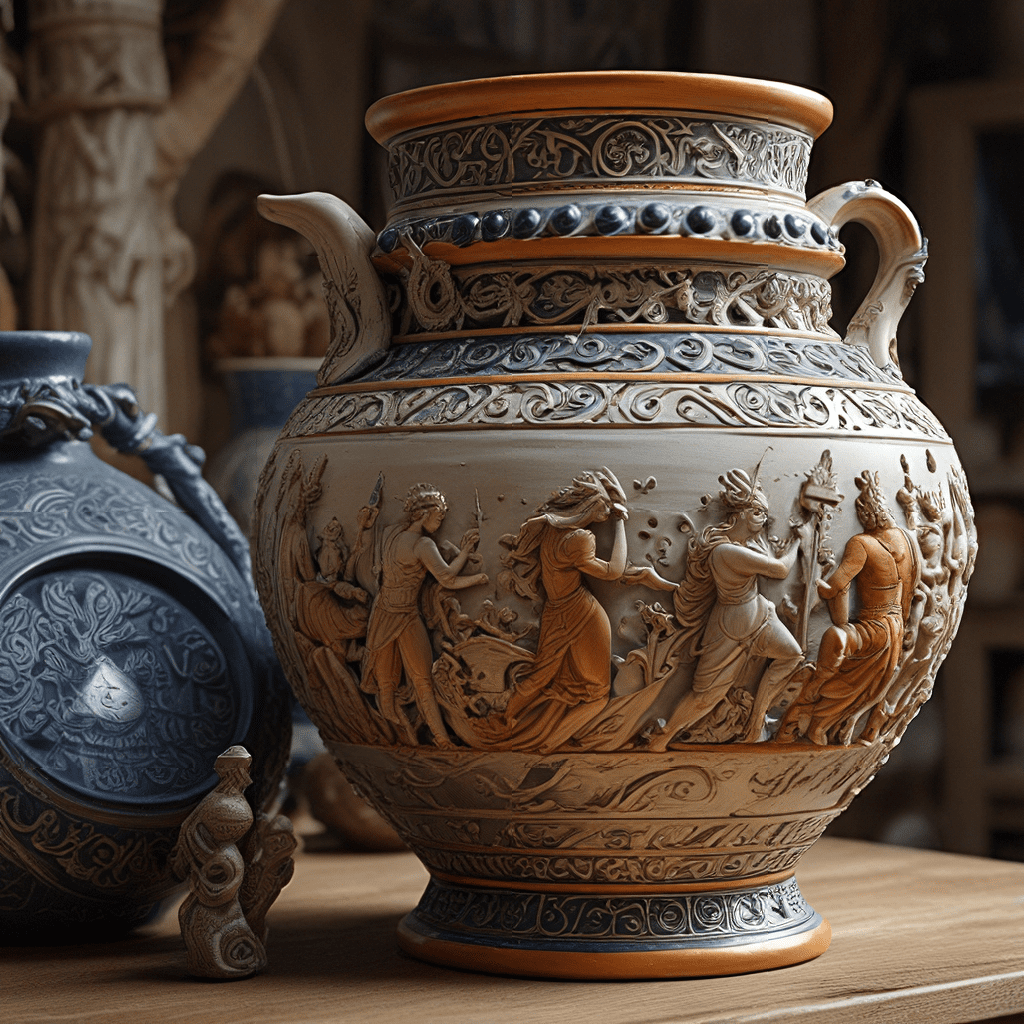The Heart’s Desire: Exploring Passion in Mythical Stories
Introduction to Mythical Narratives and Passion
Mythical narratives have long captivated audiences with their profound explorations of human emotions, particularly passion. In the context of mythology, passion can be defined as an intense emotional drive that compels characters to pursue their desires, often leading to dramatic consequences. The significance of desire and longing is integral to mythical storytelling; it propels characters into action and shapes the very fabric of their journeys.
Throughout various myths, passion serves as a driving force that influences plots and character development. Characters are frequently depicted as being consumed by their desires, leading to epic quests, tragic failures, or transformative experiences. This exploration of passion allows audiences to reflect on their own desires and the lengths to which they might go to attain them.
The Archetype of the Tragic Hero: Love and Loss
In mythology, the archetype of the tragic hero often embodies the complexities of love and loss. Figures such as Orpheus and Achilles exemplify how passion can lead to both greatness and ruin.
- Orpheus: A legendary musician whose love for Eurydice drives him to the underworld in a desperate attempt to bring her back to life. His journey is marked by profound love but ultimately ends in tragedy when he fails to adhere to the conditions set by Hades.
- Achilles: The Greek hero of the Trojan War, whose passion for glory and personal honor leads to his downfall. His love for Patroclus propels him into a rage that results in catastrophic consequences for both himself and others.
The interplay between love and fate in these stories emphasizes the consequences of unfulfilled desires. The tragic outcomes serve as cautionary tales, illustrating the dangers of allowing passion to override reason.
Divine Intervention: Love and the Gods
In many mythical stories, deities play a pivotal role in influencing human passion. Gods and goddesses such as Eros, Venus, and Aphrodite often orchestrate love stories that highlight the complexities of desire.
For instance, the tale of Pygmalion and Galatea tells of a sculptor who falls in love with a statue he created. Moved by his passion, Aphrodite brings the statue to life, demonstrating the power of divine intervention in matters of love.
These narratives often convey moral lessons, reminding us that while passion can lead to fulfillment, it can also bring chaos and conflict. The interactions between mortals and deities serve as a reflection of human struggles with desire.
The Quest for True Love: Journeys of the Heart
Mythical quests driven by love often symbolize the journey toward personal growth and self-discovery. The story of Cupid and Psyche is a prime example of how love can inspire transformative journeys.
- Symbolism of the Journey: Psyche’s trials and tribulations represent the challenges one must overcome to attain true love. Each obstacle serves as a test of her character and commitment.
- Obstacles and Trials: The various challenges Psyche faces, including betrayal and self-doubt, highlight the complexities of love and the necessity of perseverance in the face of adversity.
Ultimately, the quest for true love in these myths underscores the idea that passion is not merely about desire but also about the growth that comes from pursuing it.
Passion and Transformation: Metamorphoses in Mythology
Transformation is a recurring theme in mythology, often resulting from passionate love. The story of Daphne and Apollo illustrates how love can lead to profound change.
- Daphne’s Transformation: Pursued by Apollo, Daphne’s desire to escape his advances leads her to metamorphose into a laurel tree. This transformation signifies both the power of love and the lengths to which one might go to retain autonomy.
- Significance of Change: The physical and emotional changes experienced by characters in these narratives emphasize the impact of passion on identity and existence.
Such metamorphoses reveal the deep connection between desire and transformation, showing how love can irrevocably alter one’s life.
Forbidden Love: The Tension Between Passion and Morality
Forbidden love is a powerful theme in mythology, often characterized by societal and familial constraints that challenge the pursuit of passion. The tale of Tristan and Isolde exemplifies this tension.
- Tristan and Isolde: Their passionate love is thwarted by the expectations of loyalty and duty, leading to a tragic conclusion that underscores the high stakes of forbidden love.
- Themes of Rebellion: Many myths explore the theme of rebellion against societal norms and the sacrifices individuals are willing to make in the pursuit of passion.
The exploration of forbidden love in these narratives serves to highlight the complexities of desire and morality, illustrating the often-painful choices that accompany passionate pursuits.
The Role of Female Desire in Mythical Narratives
Female characters in mythology often embark on passionate quests, and their stories reveal significant insights into the nature of desire. Figures such as Helen of Troy and Medusa exemplify the power and consequences of female passion.
- Helen of Troy: Her beauty and desire spark the Trojan War, illustrating how female desire can catalyze monumental events.
- Medusa: Once a beautiful maiden, her transformation into a Gorgon reflects the consequences of desire and the impact of male aggression on female identity.
The depiction of female desire versus male desire in mythology often highlights societal views on gender and the impact of female passion on the narrative arc, emphasizing the complexity of these characters and their motivations.
Cultural Variations: Passion Across Mythologies
Passion manifests differently across various mythological traditions, shaped by cultural values and societal norms. A comparison of Greek, Norse, and Hindu mythologies reveals both common themes and unique interpretations of desire.
- Greek Mythology: Often emphasizes the tragic consequences of passion, as seen in the stories of Orpheus and Achilles.
- Norse Mythology: Explores themes of fate and honor, with passion often intertwined with notions of duty and sacrifice.
- Hindu Mythology: Presents love as a divine force, with stories like that of Radha and Krishna illustrating the spiritual dimensions of passion.
Cultural contexts significantly shape how passion is expressed and understood, revealing the diverse ways in which human desire is woven into the fabric of mythology.
Modern Interpretations: The Legacy of Mythical Passion in Contemporary Literature
The influence of mythical stories about passion resonates in modern storytelling, where themes of love, desire, and transformation continue to captivate audiences. Contemporary literature often draws upon mythological archetypes, reinterpreting them for new generations.
- Reimagined Tales: Many authors retell classic myths, exploring the nuances of characters’ desires and the consequences of their actions.
- Intertextual References: Modern narratives frequently reference mythical themes, allowing readers to engage with the timeless questions surrounding passion and human experience.
Through these modern interpretations, the legacy of mythical passion endures, reminding us of the enduring nature of desire and its profound impact on our lives.




